Chain Global
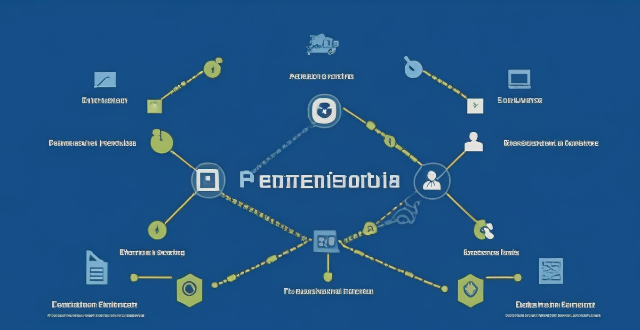
How do geopolitical factors influence the sustainability efforts of global supply chains ?
Geopolitical factors significantly influence sustainability efforts in global supply chains by affecting trade policies, political stability, resource control, infrastructure development, and cultural attitudes towards sustainability. These elements determine the costs, efficiency, and environmental impact of global production networks. Understanding these dynamics is vital for businesses aiming to build resilient and sustainable supply chain operations.
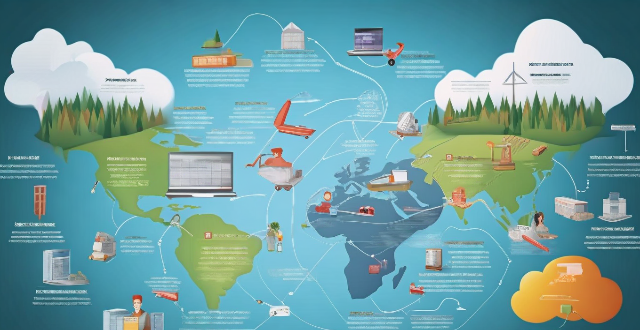
What are some best practices for managing risk associated with climate change in a global supply chain ?
This article outlines best practices for managing risk associated with climate change in a global supply chain. It suggests assessing climate change risks by identifying potential impacts and evaluating vulnerabilities, developing a risk management plan that includes setting clear objectives and implementing mitigation measures, and monitoring and reviewing performance through tracking progress against objectives and continuously improving strategies. Key strategies include diversifying supplier networks, investing in resilient infrastructure, improving energy efficiency, enhancing supply chain transparency, promoting sustainable practices, establishing regular reporting processes, benchmarking against industry standards, soliciting stakeholder feedback, revising risk management plans regularly, participating in collaborative learning opportunities, and fostering a culture of innovation within the organization.

What policies and regulations are currently in place to encourage more sustainable supply chain practices ?
Policies and Regulations Encouraging Sustainable Supply Chain Practices discusses various government initiatives, industry standards, and international agreements that promote sustainable supply chain practices. Government policies such as green procurement, carbon pricing, and eco-labels incentivize businesses to adopt environmentally friendly operations. Industry standards like CSR and LCA help companies understand and reduce their ecological footprint. International treaties like the Paris Agreement and Basel Convention provide a global framework for sustainable practices. Together, these measures form a comprehensive system to support sustainable supply chains worldwide.
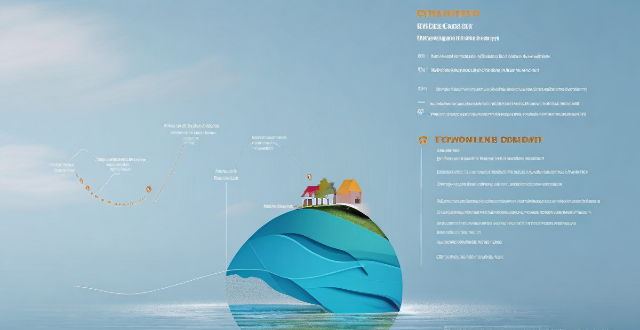
How does climate change affect global supply chain management ?
Climate change affects various aspects of life, including global supply chain management. Extreme weather events, rising sea levels, changes in agricultural production, energy costs, and labor availability are some ways in which climate change impacts this crucial aspect of business operations. Businesses must adapt their strategies to mitigate these risks and ensure the continued efficiency and effectiveness of their operations.

How can smart contracts improve supply chain management ?
Smart contracts can revolutionize supply chain management by automating transactions, enhancing transparency, improving efficiency, enabling real-time tracking, and reducing risks. This decentralized and automated approach can save time, reduce costs, prevent fraud, and improve overall trust between parties in the supply chain.

How has the COVID-19 pandemic highlighted the importance of resilient supply chain management in the face of climate-related disruptions ?
The text discusses the impact of the COVID-19 pandemic on supply chain management and emphasizes the importance of resilient supply chain management to withstand future climate-related disruptions. The pandemic caused significant disruptions in the global supply chain, including disruption of global trade, bottlenecks, shortage of raw materials, and labor shortages. A resilient supply chain is adaptable, diversified, collaborative, and leverages technology to improve efficiency, reduce waste, and increase transparency. These characteristics ensure that the supply chain can withstand not only the current crisis but also future climate-related disruptions.

How does global shopping change with holiday seasons ?
The holiday season significantly impacts global shopping trends, affecting consumer behavior, marketing strategies, and supply chain operations. Key changes include increased spending, a shift to online shopping, targeted advertising, adapted supply chains, evolving product demands, workforce adjustments, sustainability concerns, and digital transformation. Retailers must adapt to these changes to meet consumer expectations and maximize sales success.
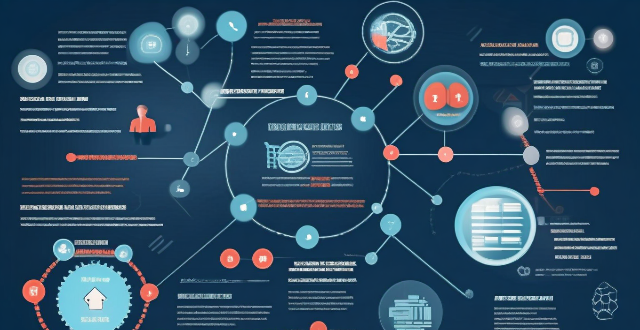
How can blockchain solve the issue of supply chain management ?
Blockchain technology can revolutionize supply chain management by addressing various challenges faced by businesses. It improves visibility and traceability, reduces paperwork and manual processes, streamlines payment processes, enhances data security, and builds trust among stakeholders. With its potential to solve many of the issues faced by businesses in supply chain management, blockchain is an ideal solution for modern supply chains.

What is the role of consumers in driving more sustainable supply chain practices through their purchasing decisions ?
Consumers play a crucial role in driving more sustainable supply chain practices through their purchasing decisions. By choosing products that are produced using environmentally friendly and socially responsible methods, consumers can influence companies to adopt more sustainable practices throughout their supply chains. This can lead to reduced carbon emissions, improved working conditions, and better resource management. The key points include education and awareness, green consumerism, supplier selection, product design, brand loyalty, public pressure, regulatory influence, investor interest, innovation, and collaboration.

What are the benefits of staying at a small, boutique luxury hotel versus a larger chain resort ?
Staying at a small, boutique luxury hotel offers several advantages compared to a larger chain resort, including personalized service, unique ambiance, a quieter environment, local flavor, and exclusivity.
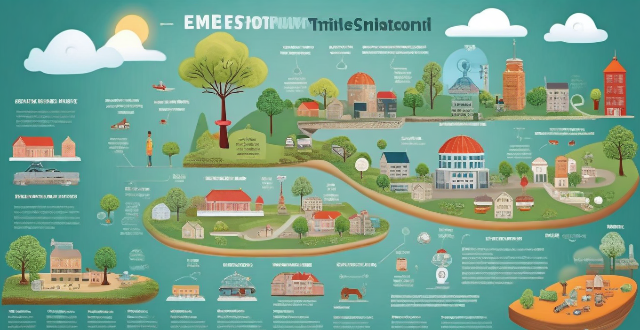
What are the economic implications of investing in climate-resilient supply chain infrastructure ?
This article explores the various economic implications of investing in climate-resilient supply chain infrastructure. It highlights how such investments can lead to cost savings, increased productivity and efficiency, improved insurance rates, enhanced supply chain visibility, and competitive advantage. The article also emphasizes the importance of building a strong brand reputation and accessing new markets through sustainable and resilient practices. Overall, it underscores the significance of prioritizing investments in climate-resilient supply chain infrastructure for businesses and economies around the world.

What are the latest trends in the global economy ?
The global economy is influenced by various interconnected factors including digital transformation, sustainability, global trade dynamics, monetary policies, and the rising influence of emerging markets. These trends are reshaping industries, fostering innovation, and influencing economic growth and policies worldwide.

In what ways can businesses engage in sustainable supply chain management as a key component of their CSR programs ?
The text discusses the importance of sustainable supply chain management in corporate social responsibility (CSR) programs. It emphasizes setting clear objectives and goals, conducting supplier audits and assessments, collaborating with suppliers, measuring performance and reporting results, and continuously improving and innovating as key steps in sustainable supply chain management. The text suggests that these practices can help businesses demonstrate their commitment to sustainability while also improving their bottom line.

What are the economic implications of global warming for different countries ?
Global warming has significant economic implications for countries worldwide, affecting sectors like agriculture, health, infrastructure, insurance, energy, and labor markets. Developing nations often face challenges related to food security, health concerns, and infrastructure damage due to extreme weather events. Developed nations may see impacts on insurance and property markets, the energy sector, and labor productivity. Globally, there can be trade disruptions, migration and security issues, and financial market fluctuations. Coordinated international efforts are crucial to mitigate these effects and adapt to the changing environment.

Can sustainable supply chain practices help reduce carbon emissions and combat climate change ?
Sustainable supply chain practices can play a crucial role in reducing carbon emissions and combating climate change. By focusing on resource efficiency, waste reduction, transportation optimization, supplier management, lifecycle assessment, renewable energy adoption, and employee involvement, companies can significantly lessen their environmental impact. These efforts not only contribute to global sustainability goals but also offer potential reputational, efficiency, and cost benefits for businesses.

What is the significance of traceability in the food supply chain for food safety ?
Traceability in the food supply chain is crucial for food safety, enhancing transparency, facilitating recalls, improving quality control, supporting regulatory compliance, enabling better risk management, and promoting sustainable practices.
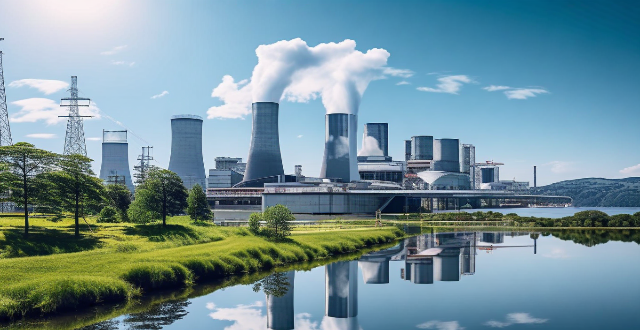
What role do technology and innovation play in improving sustainability within supply chain management ?
Technology and innovation are crucial for enhancing sustainability in supply chain management. They enable real-time monitoring, process optimization, energy efficiency, waste reduction, and transparency. By adopting these advancements, businesses can create environmentally friendly operations while maintaining profitability.

What is the outlook for the European Union's economic recovery ?
The economic recovery of the European Union (EU) depends on political stability, global economic conditions, and domestic policies. Unity among member states and effective governance are crucial for managing crises and implementing growth-promoting policies. Global trade dynamics and supply chain disruptions also play a significant role. Domestically, fiscal stimulus, structural reforms, and a balanced green transition are key. The outlook is optimistic but uncertain, with many influencing factors.
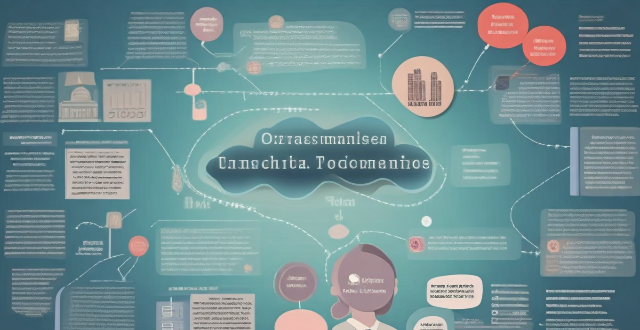
How can we ensure equitable distribution of vaccines and treatments for infectious diseases globally ?
The text discusses strategies to ensure equitable distribution of vaccines and treatments for infectious diseases globally. It suggests increasing production capacity through investing in research and development, expanding manufacturing capabilities, improving financing mechanisms by providing financial support to low-income countries and encouraging private sector participation, strengthening infrastructure and logistics through enhancing cold chain systems and developing distribution networks, promoting political will and global cooperation through advocating for international agreements and addressing intellectual property rights issues.

How can businesses measure and report their environmental performance throughout their supply chains ?
Measuring and reporting environmental performance in supply chains involves setting clear objectives, conducting a baseline assessment, developing an action plan, implementing and monitoring progress, and reporting performance transparently. Adopting standardized metrics, engaging stakeholders, and continuously improving are best practices to effectively manage environmental impact throughout the supply chain.
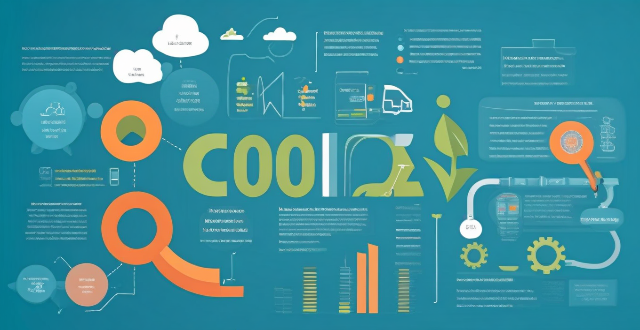
How can international cooperation on climate change contribute to global security ?
International cooperation on climate change is vital for global security. It helps mitigate environmental disasters, promotes economic stability and growth, enhances social cohesion and peace, facilitates technology and knowledge sharing, and strengthens global governance and diplomacy. Through joint efforts, nations can address one of the most pressing challenges of our time and secure a safer future for all.
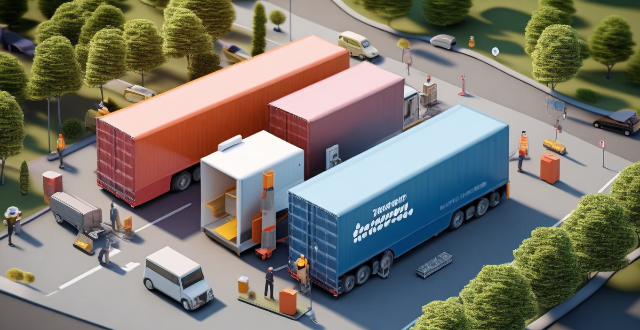
How can blockchain technology improve supply chain management in transportation ?
Blockchain technology can improve supply chain management in transportation by providing enhanced transparency, increased efficiency, improved security, and greater collaboration. This can lead to reduced costs, faster dispute resolution, and improved customer satisfaction. Blockchain allows for real-time tracking of goods, shared data access, automated processes, and reduced paperwork. It also ensures data integrity, builds trust among parties, and helps mitigate risks. By encouraging collaboration and open standards, blockchain promotes innovative solutions that can further improve supply chain management in transportation.
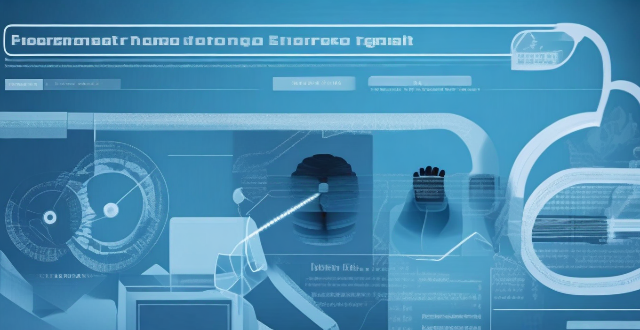
How can blockchain technology be used in supply chain management ?
Blockchain technology is poised to revolutionize supply chain management by offering transparency, traceability, and security. Smart contracts automate transactions, while secure data sharing promotes collaboration. The technology also reduces manual processes, paperwork, and enhances compliance.

How do global ESG standards vary across different industries ?
Global Environmental, Social and Governance (ESG) standards are used by organizations to measure and manage their impact on the environment, society, and governance. These standards vary across different industries due to the unique challenges and opportunities each industry presents. In the energy industry, ESG standards focus on reducing greenhouse gas emissions, improving air quality, and promoting renewable energy sources. The financial services industry faces unique ESG challenges related to responsible investment, diversity and inclusion, and ethical business practices. Manufacturing companies face ESG challenges related to waste reduction, worker safety, and supply chain management. The healthcare industry faces unique ESG challenges related to patient safety, data privacy, and access to affordable healthcare. The technology industry faces ESG challenges related to digital security, privacy protection, and responsible innovation. By focusing on specific areas of concern within each industry, organizations can work towards creating a more sustainable future while also improving their overall performance and reputation.

How can suppliers be motivated to adopt more eco-friendly practices in their operations to support a greener supply chain ?
**Motivating Suppliers to Adopt Eco-Friendly Practices** In today's world, environmental sustainability has become a global concern, and businesses are increasingly looking towards greener supply chains. However, the success of a green supply chain largely depends on the suppliers' willingness to adopt eco-friendly practices. This article provides strategies for motivating suppliers to embrace sustainable operations, including financial incentives, collaborative approaches, transparency and accountability, technology and innovation, and regulatory compliance. By implementing these strategies, businesses can effectively motivate their suppliers to adopt eco-friendly practices, which not only benefits the environment but also enhances business reputation and customer satisfaction.

How might climate-induced natural disasters, such as droughts and floods, impact global food distribution ?
Climate-induced natural disasters significantly impact global food distribution by causing crop failures, livestock losses, and infrastructure damage. Droughts and floods reduce water availability for crops or wash away topsoil, leading to reduced yields or complete crop failures. Examples include wheat, corn, and rice production disruptions in major producing regions. Floods and droughts also lead to the loss of livestock like cattle, poultry, and sheep, affecting meat, dairy, and egg supplies. Infrastructure damage such as roads, bridges, ports, and storage facilities disrupts the supply chain, making it difficult to transport and store food. Understanding these impacts is crucial for preparing and mitigating their effects on food systems.

How does climate variability affect global weather patterns ?
The impact of climate variability on global weather patterns is substantial, affecting temperature, precipitation, wind patterns, and extreme weather events. Key influences include El Niño and La Niña phases, monsoon systems, altered rainfall distribution, jet stream variations, tropical cyclones, heatwaves, cold spells, storms, floods, and droughts. Long-term climate trends like global warming also significantly affect weather patterns. Understanding these interactions is crucial for predicting future conditions and addressing climate-related challenges.
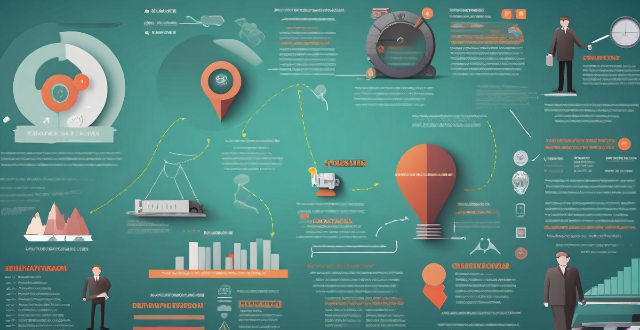
What are the main challenges faced by industries when moving towards a circular economy ?
The transition towards a circular economy presents several challenges for industries. These can be broadly categorized into economic and financial barriers, technological and innovation hurdles, market and supply chain complexities, regulatory and policy obstacles, organizational culture and capabilities, and informational and transparency issues. High upfront costs, lack of economic incentives, uncertain return on investment, limited recycling technologies, scaling up difficulties, data and knowledge gaps, fragmented supply chains, consumer behavior, markets for recycled materials, inconsistent policies, weak enforcement, legislative uncertainty, resistance to change, skills and competencies, top-down vs. bottom-up approaches, product lifecycle transparency, and eco-labeling standards are some of the main challenges faced by industries moving towards a circular economy. Collaborative efforts between government, industry, academia, and civil society are crucial to overcome these challenges.

How do climate data analysis contribute to understanding global warming ?
Climate data analysis is essential for understanding global warming, its causes, effects, and potential solutions. Scientists collect temperature records, carbon dioxide concentrations, and sea level data to identify trends, establish correlations, and create predictive models. These efforts help develop effective strategies to mitigate the impacts of global warming.
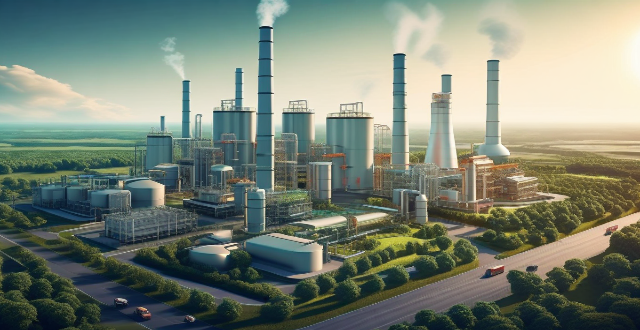
What role does natural gas play in the global energy market ?
Natural gas is a key player in the global energy market due to its environmental advantages, economic benefits, contributions to energy security, technological advancements, and versatile applications across sectors.